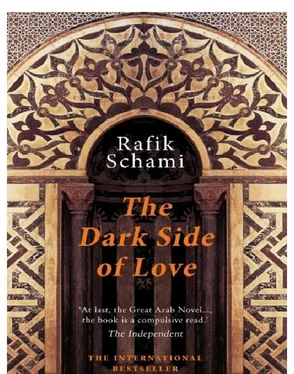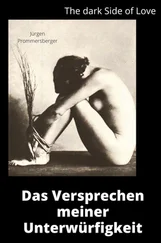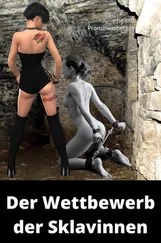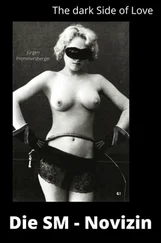“Ah, you all consider my humble self so important,” countered Shaftan hypocritically, “but for good citizens of course one is ready do everything. Is there any other way I can help you?”
“Your kindness puts me to shame,” said Salamoni gallantly.
“And you,” said Shaftan, turning to the faithful Butros, “will go to Badran at once and tell him that Farid Mushtak is under my direct protection until our leader returns from Moscow. No one is to touch him. He is to be transferred immediately to the hospital and kept well protected so that no son of a whore does anything to him until His Excellency has made his decision. Take Badran the cinecamera I brought him back from Paris. I’m sure he’ll be pleased. And tell him the young man’s mother may visit him once a week,” he added. Lieutenant Butros saluted and left the room.
“My brother’s crazy about movies. He’d have been a brilliant film maker himself if he hadn’t gone into the army. And I’ve brought him the latest thing from Paris: a Super-Eight camera. You can shoot real feature films with it,” he told Salamoni, and then turned back to Elias. “You and your wife may rest assured that nothing will happen to your son, but I hope he will always bear this incident in mind,” he concluded, and offered his hand.
Elias could no longer conceal his relief. “God protect you and your children,” he said almost inaudibly. Shaftan took a long and warm farewell of Salamoni, and accompanied him to the door.
When Elias was back in the outer office the secretary, to his surprise, handed him an envelope. “The address,” she said. He didn’t understand, but took the envelope from her. He was still in a very emotional state.
“How can I thank you?” he asked Salamoni in the car. Salamoni laughed. “Don’t bother. I like to help a decent man like you. Did you know that your father once helped mine out of a fix? But that’s a long time ago. In our family George Mushtak always stood for ideas of salvation and selfless Christian loving kindness, and now I can be proud to say that I have helped a Mushtak. I consider prisons terrible places. No cultivated human being should languish in them.”
“But you’ll have had costs. Shaftan will want more of that expensive Scotch whisky,” said Elias, much moved.
“Ah, who cares?” laughed Salamoni. “That’s nothing. Once we used to pay taxes to the excise office, now that peasants rule us I pay in kind. Peasants like that. And I get what I want considerably cheaper.” His voice dripped contempt.
“So what about this address?” asked Elias, without opening the envelope.
“Oh, that’s his eldest son Lahfan’s office. Your name is down there now, and it won’t be crossed off until you’ve paid the money. They keep everything very correct,” said Salamoni, laughing at the absurdity of it.
Elias looked at the address. It was an export-import agency. “It must be near the Central Bank,” he surmised. Salamoni nodded. “And more payments go into it than into the Bank. You may have to stand in line.”
When Elias got out of the car at Saitun Alley, he clasped his rescuer’s hand firmly. “But I need your address too, because you must try my new chocolate creations. Such delicacies come only from Elias Mushtak.”
Salamoni laughed. He gave Elias a visiting card out of a little silver box hanging from the dashboard. “My wife will be delighted. She thinks very highly of your confectionery,” he said, and the car raced away.
277. Cold Sharper Than a Razorblade
Mahdi ranted and raged over the telephone, feeling deeply humiliated. But Badran was not to be moved. The prisoner Farid Mushtak was no longer Mahdi Said’s business. Dangerous or not, he was under the protection of Badran’s brother. “And his mother is coming to see him every week until the President decides. If Shaftan hears from her that her son is being badly treated, I can’t keep you on any more, understand?”
“Yes.” Mahdi’s voice was barely audible, as if he were down in a deep pit. He hadn’t felt so small since those days in the monastery. That bastard of a prisoner from the bloody Mushtak clan was more important to Badran now than he was! As if they hadn’t been friends for a decade, as if they hadn’t faced many moments of mortal danger together. Shaftan, Shaftan! The hell with Badran and his brother. Mahdi was sure that Shaftan had been cashing in again.
He did a lot of thinking that day, and now he understood why several high-ranking officers were beginning to murmur discontentedly. One general had hinted to him that the army wasn’t happy about President Amran’s clan. Amran had handed the country over to the Russians, he said, and any common cowherd from his tribe mattered more to the President than an experienced, patriotic general. Mahdi had cautiously contradicted this, but when the general said there were some patriots who would like to get to know him, because they admired his loyalty, his Syrian pride, and his determination, he had agreed to think about it. After his humiliating conversation with Badran he reached for the telephone three times, but kept hanging up again. Badran had all his employees’ phones tapped. Mahdi knew the general’s private address. He’d just drop in and see him some time in the next few weeks, in a casual kind of way.
He got into his jeep and drove to the ruins of Palmyra. His adjutant, First Lieutenant Saadi, was astonished when Mahdi told him, as he left, to have Farid Mushtak transferred to the hospital. From today he was to be nursed and well looked after. “Orders from the very top,” added Mahdi gloomily, and he raced away in his jeep. He didn’t return until late, when he was told by his adjutant that Badran had called him three times and left a message for him to call back.
“Where were you?” Badran’s voice sounded as carefree on the line as if nothing had happened.
“I drove out to the ruins. I’ve always wanted to see them at my leisure,” replied Mahdi,
“Did I annoy you?”
“No, but I can’t understand why a terrorist with a past a mile long should be put up in …” and here Mahdi laughed derisively, “… in a luxury hotel just to please his mama.”
“Yes, I thought my good friend Mahdi hadn’t understood the whole story. I’m not interested in that whore, but Shaftan is as clever as they come — he’ll know why he’s making this move. Perhaps he wants something from the Catholic Patriarch. They say the Patriarch intervened on behalf of that bastard Farid Mushtak. No one’s really supposed to know, but I’d rather tell you as my best friend than anger you. My friend is a deep well — his name is Mahdi and still he isn’t happy.”
Mahdi laughed. A wily character, Badran, he thought, that’s what makes him capable of heading a hydra like the secret service.
“Do you know what news I’m reading just now?” But before Mahdi could reply, Badran was continuing. “It seems the Pope has come to a secret agreement with the Italian communists. He won’t oppose them in Italy any more, and in return they’ll go along with him in his drive to save Church treasures in the communist countries, from China to Russia. Wasn’t it Jesus who said, render unto Caesar that which is Caesar’s, and unto God the things that are God’s?”
“That’s right.”
“Then do me a favour and treat that son of a whore well until he’s free. That will satisfy God, and he’ll have kept his word to the Patriarch. But we haven’t been forbidden to arrest our fine gentleman again in, say, three months’ time, have we?”
It took Mahdi’s breath away. The chill in Badran’s voice was as sharp as a razorblade. When would he himself learn to master such coldness?
“Are you still there, Caesar?”
Читать дальше












